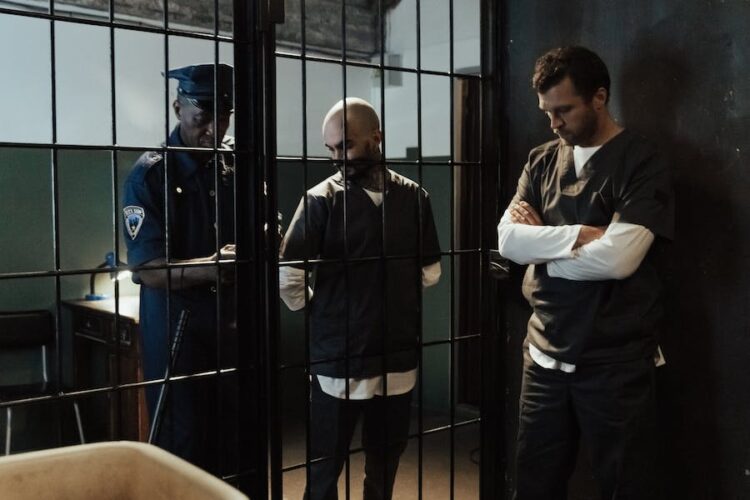Probation, often seen as an alternative to incarceration, offers individuals a chance to reintegrate into society while abiding by certain conditions set by the court. Yet, a cloud of uncertainty often surrounds the consequences of probation violations. The question looms large: “Do you automatically go to jail for violating probation?” Unraveling this intricate web of legal proceedings and dispelling misconceptions is crucial for anyone on probation or seeking to understand the justice system’s nuances.
The fear of immediate incarceration due to probation violations is a common concern, but the outcome depends on the case’s intricacies, violation nature, compliance history, and the judge’s discretion. Understanding the mechanisms behind probation violations and whether jail time is inevitable can help empower individuals and simplify the complex legal landscape.
Do You Automatically Go To Jail For Violating Probation?
No, violating probation doesn’t automatically result in jail time. The outcome depends on the specifics of the violation, your compliance history, and the judge’s discretion.
Understanding The Impact Of Probation Violations
Probation violations can lead to imprisonment in regions like Orlando and Lakeland, with two distinct avenues for breaching probation terms, requiring a comprehensive understanding of their implications.
An arrest warrant is issued for probation violations, highlighting the legal system’s seriousness. Judges may also impose a sentence tailored to the violation, adding complexity to the situation. The presiding judge’s influence determines the outcome.
Technical violations refer to probation infractions that may not result in immediate jail time. Instead, they often prompt alternative measures, such as probation adjustments or additional requirements, to address the underlying issue.
Probation violations introduce a temporal dimension, temporarily suspending progression until the issue is resolved. This pause does not contribute to fulfilling probation terms unless the violation case is eventually dismissed.
Understanding probation violations goes beyond potential incarceration, as they involve complex legal procedures and judges’ discretion. Recognizing the various avenues for addressing violations and their temporal implications provides a deeper understanding.
Types Of Probation Violations
Probation violations can be broadly categorized into two main types: technical violations and substantive violations. Understanding these categories is essential for comprehending the range of actions that could potentially lead to a violation of your probation terms.
1. Technical Violations:
Technical violations in probation involve non-criminal infractions related to probation conditions, such as missing appointments, failing drug tests, and not adhering to travel restrictions. These violations are serious and require prompt and transparent resolution to maintain compliance and avoid potential legal consequences, indicating a failure to uphold court responsibilities.
2. Substantive Violations:
Substantive violations, within the context of probation, encompass engaging in new criminal activities or offenses while under probationary terms. These violations are distinct from technical breaches and involve committing criminal acts that are separate from the original offense for which probation was granted. Substantive violations can range from felonies to criminal traffic violations, regardless of whether they are related to the initial conviction. These violations are typically considered more severe and can lead to significant consequences, potentially including probation revocation and incarceration. Adhering to the terms of probation and avoiding new criminal activities is essential to maintaining a successful probationary period.
Your Rights In Probation Violation Complaints
Navigating the terrain of probation violation complaints necessitates a clear understanding of the rights safeguarding individuals in this intricate legal landscape. When accused of violating probation, it’s essential to grasp the scope of your rights during these proceedings.
1. Right To A Fair Process
Just as with any legal matter, you retain the fundamental right to a fair process when facing probation violation accusations. This includes the right to be informed of the nature of the violation, the evidence against you, and the opportunity to present your side of the story.
2. Right To Present A Defense
You possess the right to present a defense against the allegations leveled at you. This includes the ability to call witnesses, provide evidence, and counter any claims made by the prosecution.
3. Right To Legal Representation
One of the most pivotal rights at your disposal is the right to legal representation. You have the option to be represented by an attorney who can advocate for your interests, navigate the legal complexities, and ensure that your rights are upheld.
4. Standard Of Proof: Preponderance Of Evidence
Understanding the standard of proof is crucial. In probation violation cases, the burden of proof is typically lower than in criminal trials. The prosecution must establish that it is more likely than not that you violated the terms of your probation.
5. The Role Of The Judge
A judge plays a central role in probation violation proceedings. It’s essential to recognize that, unlike a criminal trial, there is no jury involved. The judge is the decision-maker, evaluating the evidence, listening to arguments, and determining the outcome.
6. Potential Consequences
Equally important is your right to understand the potential consequences of a probation violation. These consequences can range from continued probation with additional conditions to modified terms or, in the worst-case scenario, probation revocation and subsequent incarceration.
Factors Weighed During Probation Violation Hearings
In probation violation hearings, certain key factors are carefully considered to determine the appropriate course of action following an alleged breach of probation terms. These factors play a vital role in shaping the judge’s decision and the subsequent outcome of the case.
- Nature of the Violation: The specific type and seriousness of the violation are thoroughly examined.
- Your Behavior: Your behavior and actions during the probation period are evaluated, including any efforts to comply with the terms.
- Prior History: Your history of compliance or any previous violations while on probation is taken into account.
- Effectiveness of Alternative Measures: The potential success of alternative measures, such as counseling or additional supervision, is assessed.
- Community Safety: The potential risk posed to the community by your actions is a crucial consideration.
- Mitigating Circumstances: Any factors that might mitigate the violation’s impact or suggest potential for improvement are taken into consideration.
In these hearings, the judge aims to achieve a fair and just resolution, balancing the circumstances of the violation with the goal of promoting rehabilitation and community safety.
Conclusion
The question “Do You Automatically Go To Jail For Violating Probation?” is complex and depends on factors like the violation type, history, and the judge’s decision. Each case is unique, from minor to serious offenses. To navigate this maze, it’s essential to seek legal advice, address problems quickly, and clear up misunderstandings to protect your rights and set a path for rehabilitation in the legal world.
FAQ’s
Is Jail Time Automatic If I Violate Probation?
No, violating probation doesn’t guarantee automatic jail time. The consequences depend on factors like the violation’s nature and your history.
What Determines Whether I Go To Jail For A Probation Violation?
The outcome is influenced by various factors, including the type of violation, your past compliance, and the judge’s discretion.
Are Technical Violations Treated Differently Than Substantive Violations?
Yes, technical violations (like missing appointments or failing drug tests) are typically less severe and might lead to alternative consequences. Substantive violations (new criminal activities) can be more serious and could result in harsher outcomes.
Can I Receive A Notice To Appear Instead Of An Arrest Warrant For A Violation?
Yes, for certain violations like misdemeanors, a judge might send a “Notice to Appear” instead of issuing an arrest warrant, acknowledging the varying degrees of violation severity.
What’s The Role Of A Judge In Probation Violation Cases?
The judge evaluates evidence, listens to arguments, and decides the appropriate response. Their decision can range from warnings to modified terms or, in severe cases, jail time.









